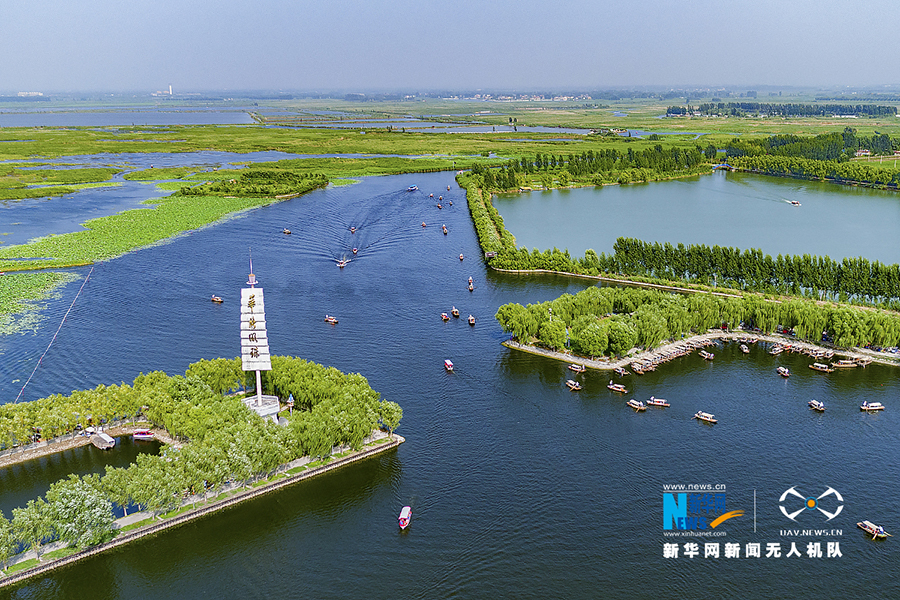Wetland restoration underway in north China's Xiongan
Environmental clean-up and ecological restoration in Baiyangdian Lake, the largest wetland ecosystem in north China, have been reinforced since Xiongan New Area was set up in 2017.
Environmental clean-up and ecological restoration in Baiyangdian Lake, the largest wetland ecosystem in north China, have been reinforced since Xiongan New Area was set up in 2017.

Baiyangdian is one of the largest freshwater wetlands in north China. With more than 140 lakes and covering 360 square kilometers, the wetland is known as the "pearl" of the North China Plain. [File photo/Xinhua]
About 3.45 million cubic meters of garbage, including 2.18 million cubic meters of river trash, has been cleaned since 2017, according to environmental authorities in the area in Hebei Province.
A total of 85 outlets that were used to illegally discharge untreated sewage into the lake have been shut down in Xiongan. Afforestation has been stepped up in the upper reaches of the lake as well.
Baiyangdian Lake, covering an area of 366 sq km, was once known for its ecological beauty, clean water, and varieties of aquatic species. However, with increasing motorized ships, industrial pollution and domestic wastewater over the past decades, the lake lost its luster.
The central government established Xiongan New Area, another new area of "national significance" following the Shenzhen Special Economic Zone and Shanghai Pudong New Area, in April 2017. In May, the Ministry of Ecology and Environment set up its first branch in Xiongan.
A team of river chiefs, eight at the city level, 260 at the county level, 1,621 at the township level and 4,534 at the village level, was established to combat water pollution, following the country's plan to introduce the system nationwide by the end of 2018.
Xiongan New Area will also promote garbage sorting in villages, according to the area's ecology and environment bureau.
The water quality in Baiyangdian has seen improvement, with an increase of fish, waterbirds, and swans. "I hope to drink the water directly in Baiyangdian just like what I did when I was a kid," said Zang Guoan, a 62-year-old riverway cleaner.